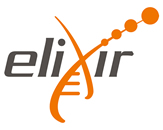European Life-sciences Infrastructure for biological Information (ELIXIR)
26 April 2021
Modified: 04 November 2025
Reading time: 2 minute(s)
 Connects life sciences databases.
Connects life sciences databases.
Its main objective is to create, develop and ensure access to existing (and future) sources of biological data.
It allows optimal storage, integration and analysis of biological information for the European research community.
| Short name | ELIXIR |
| Name | European Life-sciences Infrastructure for Biological Information |
| Official website | https://elixir-europe.org/ |
| Year of foundation | 2014 |
| ESFRI project/landmark | landmark |
| Headquarters | Hinxton, UK |
| Number of member countries | 21 |
| Participating countries | Members: Belgium, Czech Republic, Denmark, Estonia, Finland, France, Germany, Greece, Holland, Hungary, Ireland, Israel, Italy, Luxembourg, Norway, Portugal, Slovenia, Spain, Sweden, Switzerland Observer: Cyprus |
| Hungary’s accession | 2017 |
| Partner institutions in Hungary |
Research Centre for Natural Sciences, Institute of Enzymology Eötvös Loránd University, University of Debrecen, Semmelweis University, University of Pécs, Szentágothai Research Centre, University of Veterinary Medicine, Pázmány Péter Catholic University, National Institute of Oncology, National Agricultural Research and Innovation Centre, Centre for Ecological Research, Alfréd Rényi Institute of Mathematics, ATK Institute for Veterinary Medical Research University of Szeged |
| Public administration representative |
Zsuzsanna Kürti National Research, Development and Innovation Office 1077 Budapest, Kéthly Anna tér 1. Email: zsuzsanna.kurti@nkfih.gov.hu |
| Professional representative |
Zsuzsanna Dosztányi senior research fellow, ELTE Faculty of Science |
| Membership payments | 2019: EUR 45,511 (≈ HUF 15.9 million) 2020: EUR 46,421 (≈ HUF15.3 million) 2021: EUR 47 350 (≈ HUF 16,9 millió) 2022: EUR 48 297 (≈ HUF 19,3 millió) 2023: EUR 49 263 (≈ HUF 19,1 millió) |
Benefits of the membership for Hungary
- Training for domestic students in international bioinformatics courses.
- Participation in joint EU proposals on bioinformatics topics.
- A stand-alone resource for the internationalisation of domestic bioinformatics services.
- Infrastructure for running domestic technology services (GALAXY and EGA servers).
- Direct economic benefits in the research and development of pharmaceuticals, medicine, agriculture, biochemistry, biophysics and bioinformatics research.
Updated: 04 November 2025






